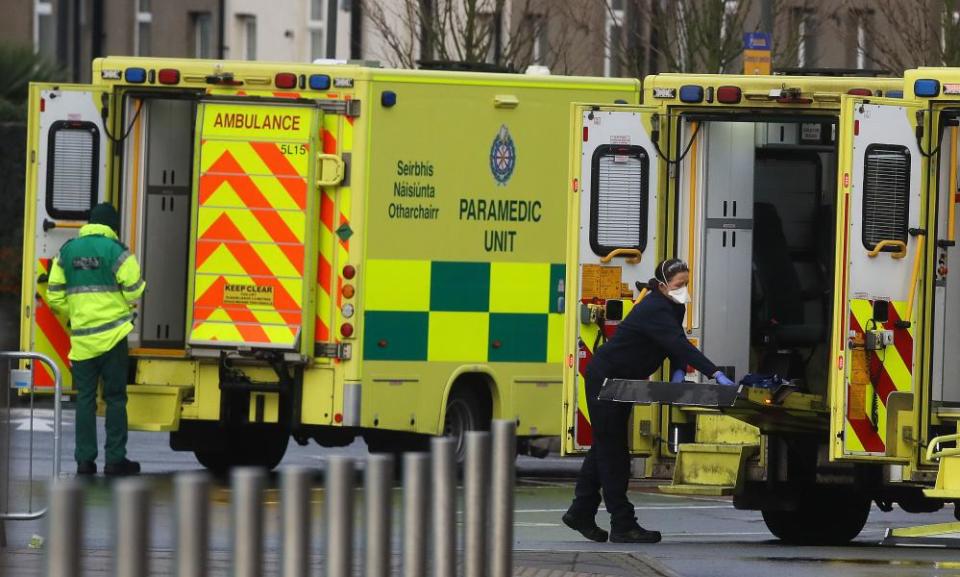Ransomware attack disrupts Irish health services

Ireland’s state health services provider has shut all its IT systems and cancelled some medical appointments after what it described as a “significant ransomware attack” overnight caused widespread disruption.
Paul Reid, the Health Service Executive chief executive, told RTÉ there had been a “human-operated” attempt to access data stored on central servers for a presumed ransom. “There has been no ransom demand at this stage. The key thing is to contain the issue. We are in the containment phase.”
Reid said the HSE was working with police, the defence forces and third-party cybersecurity experts to respond to what he termed an “internationally operated criminal operation”. He apologised to patients and the public for the disruption.
The attack has affected national and local systems that provide core services, but not Covid-19 vaccinations or ambulance services.
Ransomware is the most common form of criminal malware currently in use. Targets are commonly infected through malicious emails, which may trick them into downloading and running the software, or through exploiting vulnerabilities in other software such as Adobe Flash. When the ransomware program is activated, it encrypts the user’s hard drive with a single use encryption key, before flashing up a message asking for ransom, typically in the form of a payment in the cryptocurrency Bitcoin.
Usually, although not always, paying the ransom really does restore access to the encrypted files, which means that many businesses and organisations have found themselves funding the criminal outfits that launch ransomware attacks. Even organisations that regularly back up their data have been known to pay the ransom, since the time required to fully restore a large and complicated network from a back-up can be many days, during which no business can be done.
WannaCry, one of the most famous pieces of ransomware, managed to freeze much of the NHS in May 2017. The malware made use of a vulnerability in Microsoft’s Windows operating system to spread automatically between computers, allowing it to rapidly traverse the globe. The attack was launched by a cybercrime group dubbed Lazarus by researchers, which is believed to be a state-backed outfit run by the North Korean government.
Most ransomware attacks are very different from WannaCry, involving highly targeted infections of big targets who are likely to pay a high ransom to receive their data back in good time.
Alex Hern
Several hospitals cancelled outpatient visits or urged patients with appointments not to attend. The Rotunda, a Dublin maternity hospital, said it was experiencing a “critical emergency” and cancelled all outpatients visits except for women who were more than 35 weeks pregnant.
The oncology department at Cork university hospital was reportedly paralysed. The child and family agency Tusla said its IT systems, including email, internal systems and the portal through which child protection referrals are made, were not working.
There is a significant ransomware attack on the HSE IT systems. We have taken the precaution of shutting down all our our IT systems in order to protect them from this attack and to allow us fully assess the situation with our own security partners.
— HSE Ireland (@HSELive) May 14, 2021
Earlier this week hackers crippled the Colonial petrochemical pipeline that stretches from Texas to New York, causing fuel shortages and states of emergency to be declared in four states. The company reportedly paid a $5m ransom fee. A group of cybercriminals called Darkside claimed responsibility for the attack.
Fergal Malone, the master of the Rotunda, said the hospital discovered unusual activity in its IT systems at about 2am and later detected what appeared to be a ransomware virus. “We use a common system throughout the HSE in terms of registering patients and it seems that must have been the entry point or source,” he told RTÉ. “It means we have had to shut down all our computer systems.”
All patients were safe and the hospital had contingency plans to operate using a paper-based system, he said. “We have systems in place to revert back to old-fashioned record-keeping.” Lifesaving equipment was not affected. “Patients will come in in labour over the weekend and we will be well able to look after them.”

 Yahoo Movies
Yahoo Movies 